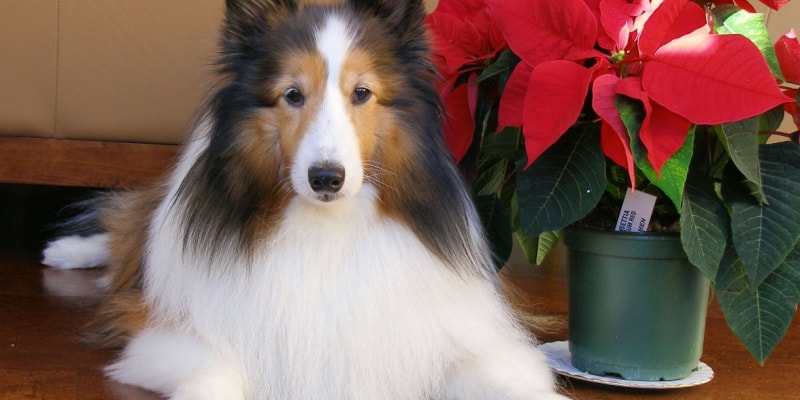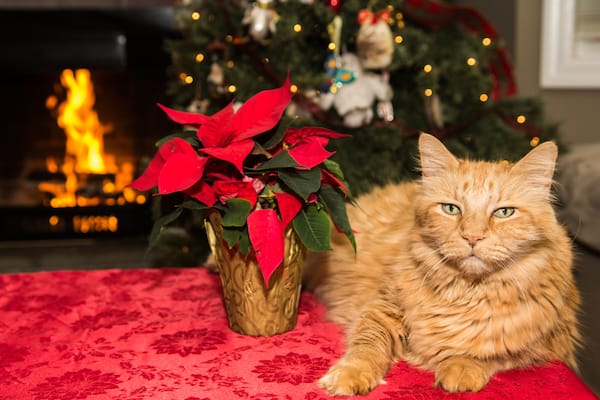
Are poinsettias poisonous to cats and dogs?
Our site is reader supported, this means we may earn a small commission from Amazon and other affiliates when you buy through links on our site.
Poinsettias are not considered poisonous to cats and dogs, and humans as sometimes people make out. In fact, it’s not really a concern, but there are a few things worth knowing. That said, ingesting a large amount of the plant’s leaves and bracts can cause discomfort and irritation to cats and dogs, but it’s actually the milky sap that contains diterpenoid euphorbol esters and saponin-like detergents.
Read on to discover why you should instead be concerned about touching the milky sap of this plant and why its actually the pesticides used on poinsettias that are more of a risk.
Toxicity
University and hospital research show that the poinsettia is not as seriously toxic as the gardening rumours say. However, other species in this Euphorbia family are more toxic, so don’t confuse the poinsettia with them.
It’s best to keep this plant away from pets and kids anyway. Ingesting many of the leaves causes irritation of the stomach for dogs and cats leaving them with an upset stomach and perhaps drooling and itchiness. In addition, it hurts the insides of their mouths. This, however, is no serious and soon passes.
These are unpleasant side effects. But most animals stop eating the leaves once they realise the irritation that doing so causes.
The white sap of the plant
You’re more likely to come into contact with the milky white sap of the poinsettia. The white sap is also not poisonous. But it is an inconvenience as it can cause a reaction in your skin like a lot of plants can.
This sap can cause a skin rash, especially in people who have a latex allergy. If you don’t use gloves when you’re caring for your poinsettia, make sure not to touch your eyes or mouth with your fingers during your task. Wash your hands thoroughly afterwards, along with your tools as the sap can make them sticky.
Pesticides
Although poinsettias aren’t poisonous, there’s another way eating them may cause discomfort. As with any plant that you haven’t grown yourself from scratch, there may be unknown pesticides or fungicides on the poinsettia you bring home from the store. If your pet eats a large quantity of the leaves, the pesticide might cause a disagreeable reaction in its stomach. Younger animals are more vulnerable to these upsets than older, more mature ones. I recently saw a similar situation to this when a friend’s dogs actually ate grass that had been treated with feed and weed. This ended well. However, the dog was ill for around 5 days.
What to do
If your cat or dog has eaten a number of poinsettia leaves and is in severe distress, please take them along to your vet or the nearest emergency vet clinic. It’s best to be sure that they’re not permanently harmed. In general, though, poinsettias are certainly not poisonous to cats and dogs.
Learn more about growing poinsettias here. You can also learn about why poinsettias sometimes drop there leaves and how to water them here as well as when to feed them here.
